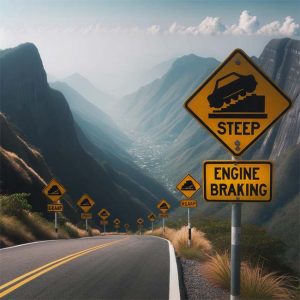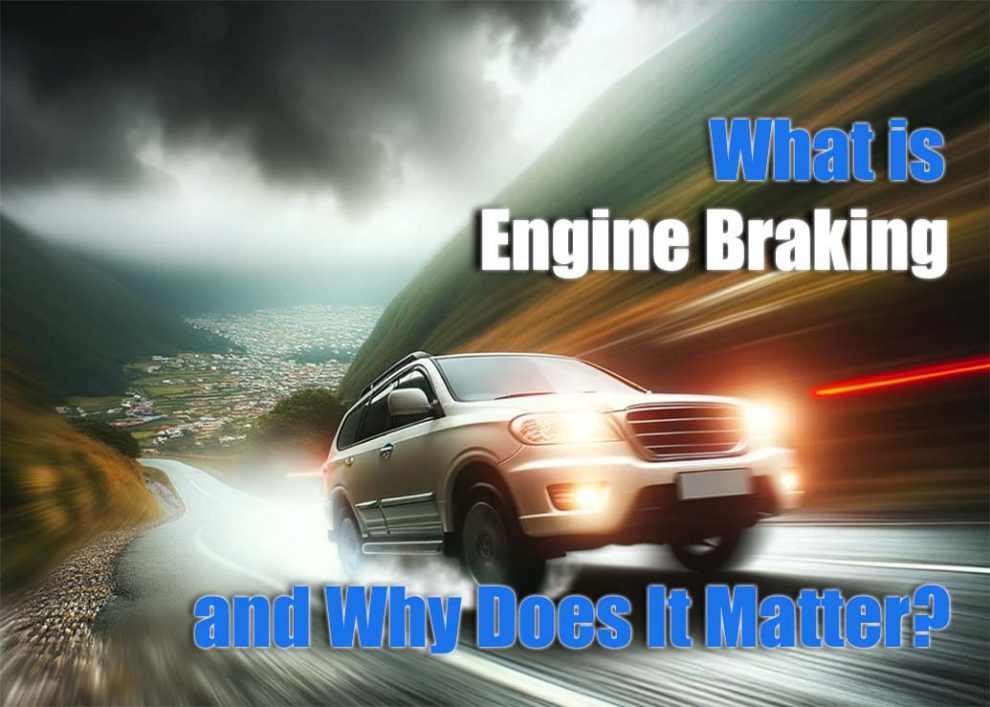Engine braking is an essential aspect of vehicle dynamics and functionality. The term refers to the phenomenon where deceleration is achieved not by the external braking system but through the resistance offered by the engine itself. In other words, instead of solely relying on the vehicle’s braking system, which involves brake pads and discs, engine braking harnesses the engine’s capabilities to slow down the vehicle. This system is prevalent in both gasoline and diesel vehicles, highlighting its universal application and relevance in the automobile world.
Operational Aspects of Engine Braking
 Understanding the technicalities of “what is engine braking,” one should consider the intricate operations of the combustion engine. As drivers reduce the throttle or lift their foot off the accelerator, there’s a marked reduction in the air-fuel mixture entering the engine. The throttle valve closes, and with the engine starved of its air-fuel blend, it has to work harder against the resistance. This increased resistance, in turn, slows the vehicle down. This type of braking offers a distinct method of control, a departure from merely using mechanical brakes, and presents a nuanced understanding of vehicular deceleration.
Understanding the technicalities of “what is engine braking,” one should consider the intricate operations of the combustion engine. As drivers reduce the throttle or lift their foot off the accelerator, there’s a marked reduction in the air-fuel mixture entering the engine. The throttle valve closes, and with the engine starved of its air-fuel blend, it has to work harder against the resistance. This increased resistance, in turn, slows the vehicle down. This type of braking offers a distinct method of control, a departure from merely using mechanical brakes, and presents a nuanced understanding of vehicular deceleration.
Engine Braking Benefits
Understanding the advantages of engine braking showcases its significance in vehicular design and operation. When drivers utilize engine braking, they can expect several notable benefits. Here are the primary advantages of this system:
-
Extended Brake Lifespan: Reduces the wear and tear on brake pads and discs, potentially elongating the time between maintenance or replacements.
-
Enhanced Fuel Efficiency: Reduced reliance on the braking system translates to lesser fuel consumption during deceleration periods.
-
Smoother Driving Experience: Engine braking ensures a more controlled and gradual slowing down, leading to a smoother driving experience, especially on descents or hilly terrains.
-
Environmental Benefits: With improved fuel efficiency and reduced wear on brake components, engine braking indirectly contributes to lesser environmental degradation.
By integrating these benefits into regular driving habits, users can optimize the performance and longevity of their vehicles, making engine braking a valuable tool in the driver’s toolkit.
Contrasting Engine Braking with Conventional Braking
 Traditional braking and engine braking serve the same purpose but achieve it through different mechanisms. Conventional braking relies on physical components like brake pads and discs to generate friction against the vehicle’s wheels, causing it to slow down. In contrast, engine braking employs the resistance within the engine to achieve the deceleration. This difference in approach brings about varied benefits and considerations for drivers and automotive engineers alike.
Traditional braking and engine braking serve the same purpose but achieve it through different mechanisms. Conventional braking relies on physical components like brake pads and discs to generate friction against the vehicle’s wheels, causing it to slow down. In contrast, engine braking employs the resistance within the engine to achieve the deceleration. This difference in approach brings about varied benefits and considerations for drivers and automotive engineers alike.
Final Thoughts
Engine braking is more than just a technical jargon in the automobile industry. It’s a vital component that enhances vehicle performance, safety, and efficiency. While conventional braking systems have their own set of advantages, understanding engine braking provides insights into the broader dynamics of vehicle operation. As automobile technology continues to advance, concepts like engine braking become even more critical in discussions about vehicle efficiency and sustainability. For enthusiasts keen on boosting their vehicle’s performance, consider exploring our article on the Best cold air intake for Nissan Altima.


Add Comment